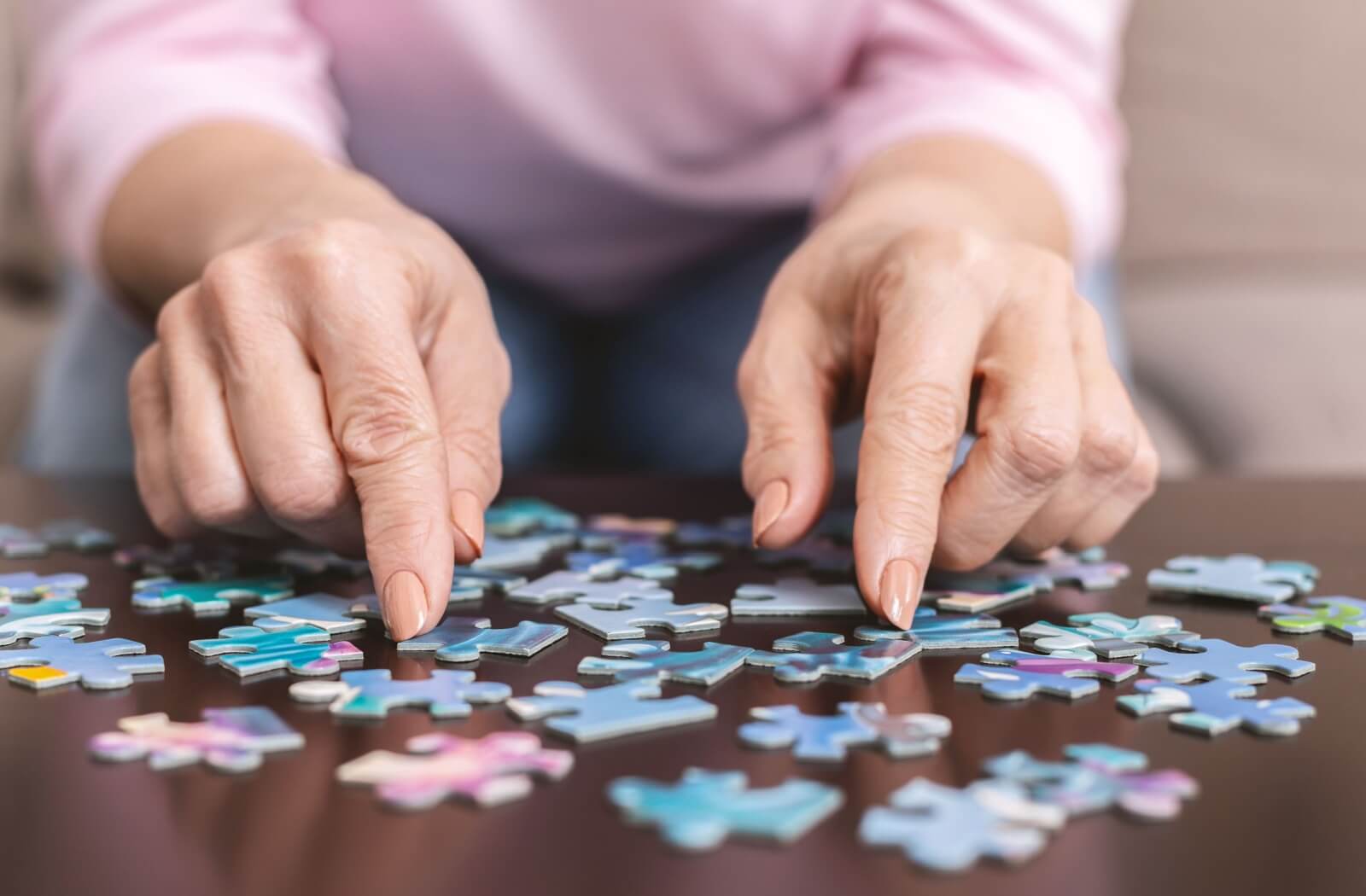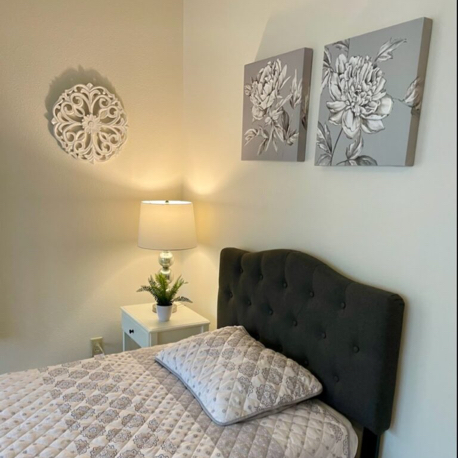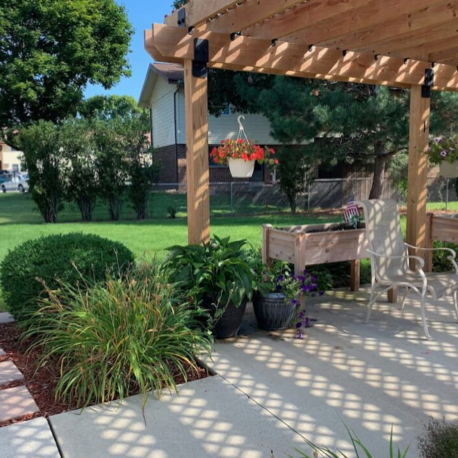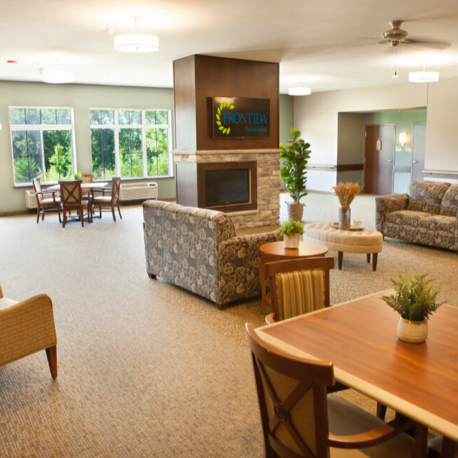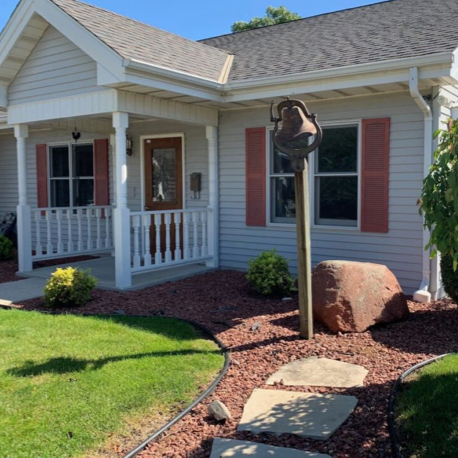Caring for a loved one with memory loss and behavioral health needs can feel overwhelming, but meaningful engagement can make a powerful difference. For seniors facing cognitive decline along with conditions like anxiety, depression, or mood disorders, daily activities are more than just routines, they’re essential tools to support emotional balance, mental stimulation, and personal dignity.
Memory care activities, such as music therapy, arts and crafts, puzzles and games, and social events, are more than just pastimes; they provide an opportunity to uplift, empower, and foster connections while helping to reduce cognitive decline.
Benefits of Behavioral Memory Care Activities
Reducing someone with dementia or Alzheimer’s down to what they can’t do doesn’t help anyone.
Instead, research has shown that encouraging individuals with memory issues to continue engaging in activities they love enhances their quality of life and reduces behaviours such as wandering or agitation.
1. Boosting Happiness
Engaging in enjoyable activities can stimulate positive emotions, alleviate anxiety, and reduce feelings of restlessness. These moments of joy help ease symptoms of anxiety and depression while promoting calm and comfort.
2. Building Connection
Memory care activities provide caregivers, friends, and family members a shared opportunity to bond with their loved ones. These moments reinforce emotional connections, strengthen relationships, and remind seniors they’re not facing challenges alone.
3. Empowerment
Activities that allow seniors to contribute or rediscover skills from their past can help build confidence. Even simple tasks, like folding laundry or painting, can give older adults a sense of autonomy and purpose.
Activity Ideas for Seniors with Behavioral Health Needs
Now that you understand the benefits, here are 6 activity ideas to incorporate into your memory care routine. Remember to prioritize your loved one’s interests when choosing activities to include in their day.
1. Music Therapy
Music can evoke emotions and memories even in advanced stages of cognitive decline. Choose songs from their younger years or ones related to special occasions (e.g., wedding songs or cultural tunes). Sing along together or simply listen in a relaxed setting.
Some seniors who have difficulty expressing themselves verbally can still hum or sing the lyrics to a favorite song. It’s a powerful example of how music therapy can benefit aging adults. Music crosses cognitive barriers and creates moments of connection.
Tip: Consider using playlists curated for memory care on platforms like Spotify or Apple Music.
2. Artistic Expression
Engaging in arts and crafts gives seniors the freedom to express themselves creatively. Simple activities like painting, coloring, or clay modeling require minimal instructions and encourage focus and calmness.
Art therapy often sparks satisfaction, even if the final product isn’t “perfect.” The colors and movement involved can enhance motor skills and emotional well-being.
Tip: Select non-toxic materials and tools that are easy to grip, especially for individuals with arthritis or reduced dexterity.
3. Cognitive Games
Games aren’t just fun; they can help enhance memory and problem-solving skills! Puzzles, matching games, and word searches keep the mind engaged and stimulated.
Consider games based on personal interests or family traditions.
For instance, playing an easier version of Scrabble might elicit nostalgia and boost their willingness to participate. Picture matching games—featuring a category that’s meaningful to them—can help encourage seniors to make connections.
Tip: Adjust game difficulty to avoid frustration. Focus on the joy of playing rather than the result.
4. Physical Exercise
Staying physically active is crucial for overall health and can significantly enhance mental clarity. Gentle activities, such as chair yoga, stretching, or short walks, promote blood flow to the brain and boost mood.
Some seniors find joy in dancing to their favorite tunes, which combines physical activity with music therapy to add an extra layer of engagement and enjoyment.
Tip: Tailor exercises to their physical capabilities. Make it fun, social, and safe.
5. Everyday Chores
Believe it or not, household chores can double as memory-stimulating activities. Folding towels, sorting buttons, or setting the table taps into past routines and offers a valuable sense of accomplishment.
Giving seniors tasks they can manage fosters independence and purpose in their daily lives.
Tip: Be flexible about how you complete the task. Even if your loved one doesn’t fold the towels perfectly, celebrate the effort!
6. Social Activities
Interacting with others is essential for mental stimulation and emotional health. Whether it’s a small group activity, such as a game night or attending a local senior event, these interactions help combat isolation and loneliness.
If group activities aren’t available, connecting with family or friends through video calls or one-on-one chats can also be beneficial.
Tip: Create a social setting that feels welcoming. Tailor the interaction to your loved one’s comfort level, whether that means a shorter duration or set up in their preferred space.
Tips for Memory Care Activities

Finding the right balance when introducing memory care activities requires sensitivity and a flexible approach. Follow these tips to help make the experience positive and enriching for you and your loved one.
Focus on the Process, Not the Outcome
The value lies in the act of doing, not in the result. If the painting is abstract or the game unfinished, remember it’s about the moments shared and the engagement fostered, not the end product.
Offer Help & Modify When Needed
Always observe how much guidance they require. Offer assistance when necessary, but refrain from taking over the activity. Striking this balance fosters confidence and reduces feelings of inadequacy.
Avoid Negativity & Be Patient
Stay patient and gentle. Celebrate even the smallest achievements by offering encouragement and compliments. Avoid corrections that could feel discouraging or frustrating.
Consider Timing
Adjust activities to coincide with the times of day when individuals are most alert and receptive. Morning sessions work better for some, while others may thrive in the afternoon. Observe their natural rhythm and plan accordingly.
Finding success and enjoyment often involves embracing your loved one’s individual rhythm. You’ll likely need to plan extra time to honor their pace without feeling pressured to achieve an immediate outcome.
Enrich Each Day with Meaningful Moments
Engaging seniors with cognitive decline in memory care activities benefits their overall well-being. It can also be deeply rewarding for the caregivers, family, and friends. These activities provide opportunities to connect, create joy, and empower your loved one.
At Willowgreen Home, we know caregiving is a shared experience. Contact us today to learn how our behavioral assisted living team can support your loved one with meaningful, structured engagement, every day.

